Reebok supports Israel through a new two-year sponsorship deal with the Israel Football Association (IFA), signed in February 2025. This agreement comes at a controversial time, following PUMA’s decision to end its partnership with the IFA on December 31, 2024.
The Reebok sponsorship is particularly notable because it follows significant international legal rulings. In July 2024, the International Court of Justice (ICJ) assessed that Israel’s occupation of Gaza and the West Bank, including East Jerusalem, is illegal. Additionally, in January 2024, the ICJ ruled that Israel is plausibly committing genocide in Gaza. Despite these rulings, the IFA continues to include teams based in settlements that have been confirmed illegal under international law.
This article examines the details of the Reebok Israel partnership, the controversies surrounding the IFA, the legal backdrop against which this sponsorship exists, and reactions from various stakeholders.
Reebok’s Sponsorship Deal with the IFA
The athletic apparel giant Reebok stepped into a high-profile partnership with Israeli sports in early 2025. This section explores the specifics of this arrangement and its implementation across Israeli football.
When the deal was signed
In February 2025, Reebok formally established its partnership with the Israel Football Association (IFA), marking a significant development in sports sponsorship in the region. This arrangement came approximately two months after PUMA’s previous sponsorship concluded on December 31, 2024. The timing of Reebok’s decision to support Israel through this deal occurred amid ongoing international attention on the region, which makes the partnership noteworthy beyond standard corporate sponsorship announcements.
What the sponsorship includes
The two-year agreement between Reebok and the IFA encompasses comprehensive support for Israeli football. Generally, such sponsorship deals involve financial backing, equipment provision, and marketing collaboration. For the IFA, this partnership likely provides crucial funding for various football programs throughout Israel. Furthermore, the deal presumably includes Reebok supplying official kits and training gear for the Israeli national teams at different age levels. This type of arrangement typically strengthens both the sporting organization’s operations and the sponsor’s brand presence in the target market.
Reebok’s logo on IFA platforms
As part of standard sponsorship practices, the Reebok logo now appears prominently across various IFA platforms. This visibility extension typically includes placement on official team jerseys, training equipment, and sideline gear. Moreover, Reebok’s branding is presumably featured on the IFA website, social media channels, and physical advertising at stadiums during matches. The omnipresence of Reebok’s logo at Israeli football events serves as a constant visual reminder of the brand’s support for Israel’s football programs. Consequently, this visibility connects Reebok with Israeli sports in the public consciousness, creating an association between the apparel company and the national football organization.
Why the IFA is Controversial
The Israel Football Association stands at the center of multiple serious controversies that have triggered international concern. These issues extend well beyond typical sporting matters into significant legal and ethical territory.
Teams based in illegal settlements
The IFA openly incorporates teams that operate within Israeli settlements in the occupied West Bank. Currently, at least eight football clubs play in these colonial settlements, with a ninth club based inside Israel also hosting some home games in settlement territory. Specific teams identified include those in Ma’aleh Adumim, Kiryat Arba, Givat Zeev, Bikat Hayarden, and Ariel. This practice directly violates FIFA’s own statutes, which prohibit member associations from playing on another association’s territory without permission. The Palestine Football Association has never authorized these activities, yet the IFA continues to incorporate these settlement clubs into its national leagues.
Accusations of complicity in apartheid
By maintaining teams in illegal settlements, the IFA faces accusations of complicity in apartheid and military occupation. In July 2024, the International Court of Justice formally assessed that Israel’s occupation violates the prohibition on racial segregation and apartheid. The settlement club system is inherently discriminatory since Palestinian residents of the West Bank cannot access the pitches where games occur—these facilities are reserved exclusively for Israeli settlers. Many Israeli clubs have reportedly exhibited racism toward Palestinian people and players over the years. This situation contributes to what legal experts describe as systematic racial discrimination that permeates all aspects of public life for Palestinians.
Connection to Israeli government policies
The IFA’s actions closely align with broader Israeli government policies. In May 2024, after the PFA filed complaints with FIFA, Israel’s Foreign Minister publicly threatened to imprison PFA president Jibril Rajoub. According to submissions to FIFA, the IFA has allegedly collaborated with the government to prevent the PFA from exercising its rights as a FIFA member. Certain clubs with controversial policies have reportedly received direct political support from senior government figures. Through these connections, the IFA effectively legitimizes Israel’s settlement activities that the ICJ has explicitly ruled unlawful.
Legal and Ethical Backdrop
Reebok’s partnership with the IFA exists against a complex legal backdrop that raises serious ethical questions about corporate responsibility in conflict zones.
ICJ ruling on occupation and genocide
The International Court of Justice (ICJ) delivered two landmark rulings in 2024 with profound implications. In January, the court ruled that Israel is plausibly committing genocide in Gaza. Subsequently, in July, the ICJ declared Israel’s entire occupation of Gaza and the West Bank, including East Jerusalem, illegal and in violation of prohibitions against apartheid. Notably, the court mandated Israel to end its occupation, dismantle settlements, and provide full reparations to Palestinian victims. Both rulings carry obligations for third parties not to contribute to these violations.
International law on settlements
Israeli settlements unequivocally violate Article 49 of the Fourth Geneva Convention, which prohibits an occupying power from transferring its civilian population into occupied territories. In fact, the settlements contravene the Hague Regulations of 1907 regarding the usufruct of public property. The United Nations has repeatedly condemned settlements as illegal, most recently in Security Council Resolution 2334 (2016). Essentially, key activities required for establishing settlements constitute war crimes under the Rome Statute.
Obligations of companies under human rights law
Under the UN Guiding Principles on Business and Human Rights, companies must “avoid causing or contributing to adverse human rights impacts”. This responsibility exists “over and above legal compliance”. Therefore, businesses engaging with entities linked to illegal settlements risk complicity in internationally recognized violations.
Public and Brand Reactions
The pattern of corporate sponsors distancing themselves from the IFA reveals growing global concern about involvement with Israeli sports organizations.
Previous sponsors who withdrew
A chain of major brands has ended partnerships with the IFA. In 2018, Adidas discontinued its sponsorship after Palestinian sports teams led a campaign that delivered over 16,000 signatures to the company’s headquarters. PUMA followed suit, declining to renew its contract after enduring a five-year global boycott campaign that concluded on December 31, 2024. Most recently, Italian sportswear company Erreà withdrew from its two-year contract in early 2025 without ever delivering a single jersey to the IFA.
Reebok’s silence and lack of response
In contrast to its predecessors, Reebok has maintained notable silence regarding its controversial partnership. When invited to respond by the Business & Human Rights Resource Centre in March 2025, Authentic Brands Group (Reebok’s parent company) offered no reply. The company further created confusion by temporarily removing its logo from the IFA website and having players continue using old PUMA jerseys, while steadfastly refusing to answer questions from advocates.
Activist campaigns and boycott calls
The Boycott, Divestment, Sanctions (BDS) Movement has launched a priority campaign against Reebok, warning that the company “will face an international boycott campaign just as Erreà, PUMA and Adidas before them”. Advocates highlight that Reebok’s sponsorship occurs while “at least 807 Palestinian sportspeople have been murdered in the genocide”.
Week of Action and global protests
Concurrently, organizations including Clean Clothes Campaign coordinated a Global Week of Action aimed at pressuring Reebok through multiple channels:
- Contacting Reebok’s customer service team
- Emailing the CEO of Authentic Brands Group
- Flooding the company’s social media with demands
We’ve covered multiple fashion labels with ties to Israel. To view the full set of case studies, visit our main guide: Fashion Brands That Support Israel.
Final Thoughts
The stark contrast between Reebok’s historical stance on ethics and its current decision raises important questions. Previously, the brand demonstrated high ethical standards, once ending its partnership with a rapper over controversial lyrics. Nevertheless, the company has chosen a path that three previous sponsors explicitly avoided.
Important to realize how Reebok’s corporate structure might influence this decision. In 2021, ownership shifted from adidas to Authentic Brands Group, potentially altering the company’s ethical framework. Coupled with Reebok’s diminished position in the sportswear market—particularly in football, where it holds minimal sponsorships—this partnership might represent an attempt to regain relevance regardless of ethical concerns.
Above all, Reebok’s continued silence speaks volumes. When invited to respond to concerns in March 2025, the company offered no statement. In essence, this non-response stands in sharp contrast to the actions of Erreà, which withdrew from its IFA contract before ever delivering jerseys, recognizing the toxic nature of association with the organization.
The history of successful boycott campaigns against previous IFA sponsors suggests Reebok may face similar pressure. Adidas ended its partnership following the delivery of 16,000 signatures, whereas PUMA withdrew after a five-year global boycott campaign. On the whole, Reebok’s decision to support Israel through the IFA sponsorship places it squarely against an established pattern of corporate withdrawals from similar arrangements.
FAQs – Reebok Supports Israel
1. Does Reebok support Israel?
Yes. Reebok supports Israel through its two-year sponsorship deal with the Israel Football Association (IFA), signed in February 2025. This agreement came just two months after PUMA ended its sponsorship with the IFA following years of boycott campaigns.
2. Why is the Israel Football Association (IFA) controversial?
The IFA includes at least eight football clubs based in illegal settlements in the occupied West Bank. This violates both FIFA statutes and international law. The ICJ ruled in 2024 that Israel’s occupation and settlements are illegal, and critics argue that IFA’s activities normalize apartheid and military occupation.
3. How does Reebok’s sponsorship compare to PUMA’s previous deal?
Unlike PUMA, which ended its partnership after sustained activist pressure, Reebok stepped in almost immediately to replace it. This makes Reebok the latest brand to face boycott campaigns and international criticism for aligning with Israeli sports organizations tied to settlements.
4. What does Reebok’s deal with the IFA include?
The two-year agreement provides financial support, official kits, and branded gear for Israeli national teams. Reebok’s logo is featured across jerseys, equipment, stadiums, and online platforms, making its support for Israel’s football programs highly visible.
5. What international legal rulings affect this sponsorship?
Two landmark ICJ rulings in 2024 declared Israel’s occupation illegal and stated that Israel is plausibly committing genocide in Gaza. These rulings obligate third parties—including companies like Reebok—not to contribute to or legitimize unlawful activities such as settlement expansion and apartheid.
6. Has Reebok responded to the criticism?
So far, Reebok and its parent company, Authentic Brands Group, have remained silent. In March 2025, they refused to respond to inquiries from the Business & Human Rights Resource Centre. This silence contrasts sharply with previous sponsors like Adidas, PUMA, and Erreà, which ultimately ended their IFA partnerships.
7. Why are activists calling for a boycott of Reebok?
Campaigners argue that by sponsoring the IFA, Reebok is complicit in supporting illegal settlements and apartheid policies. The BDS Movement has launched a global boycott campaign against Reebok, citing that more than 800 Palestinian athletes have been killed in the ongoing genocide.
8. What happened to the previous IFA sponsors?
Adidas, PUMA, and Erreà all ended their sponsorships with the IFA following intense global pressure. Activists point to this history as evidence that Reebok will likely face similar backlash until it withdraws its sponsorship.
9. How has the public reacted to Reebok’s decision?
Reebok’s sponsorship has triggered widespread criticism, with activists organizing a Global Week of Action that included contacting Reebok’s leadership, flooding social media, and targeting customer service lines. The backlash reflects how brand partnerships with the IFA are seen as politically charged and ethically unacceptable.
10. Does this affect Reebok’s reputation in the sportswear market?
Yes. Reebok previously had a reputation for ethical decisions, including cutting ties with controversial celebrities. By sponsoring the IFA, the brand risks alienating socially conscious consumers while positioning itself against a trend of major companies withdrawing from partnerships with Israeli sports bodies.

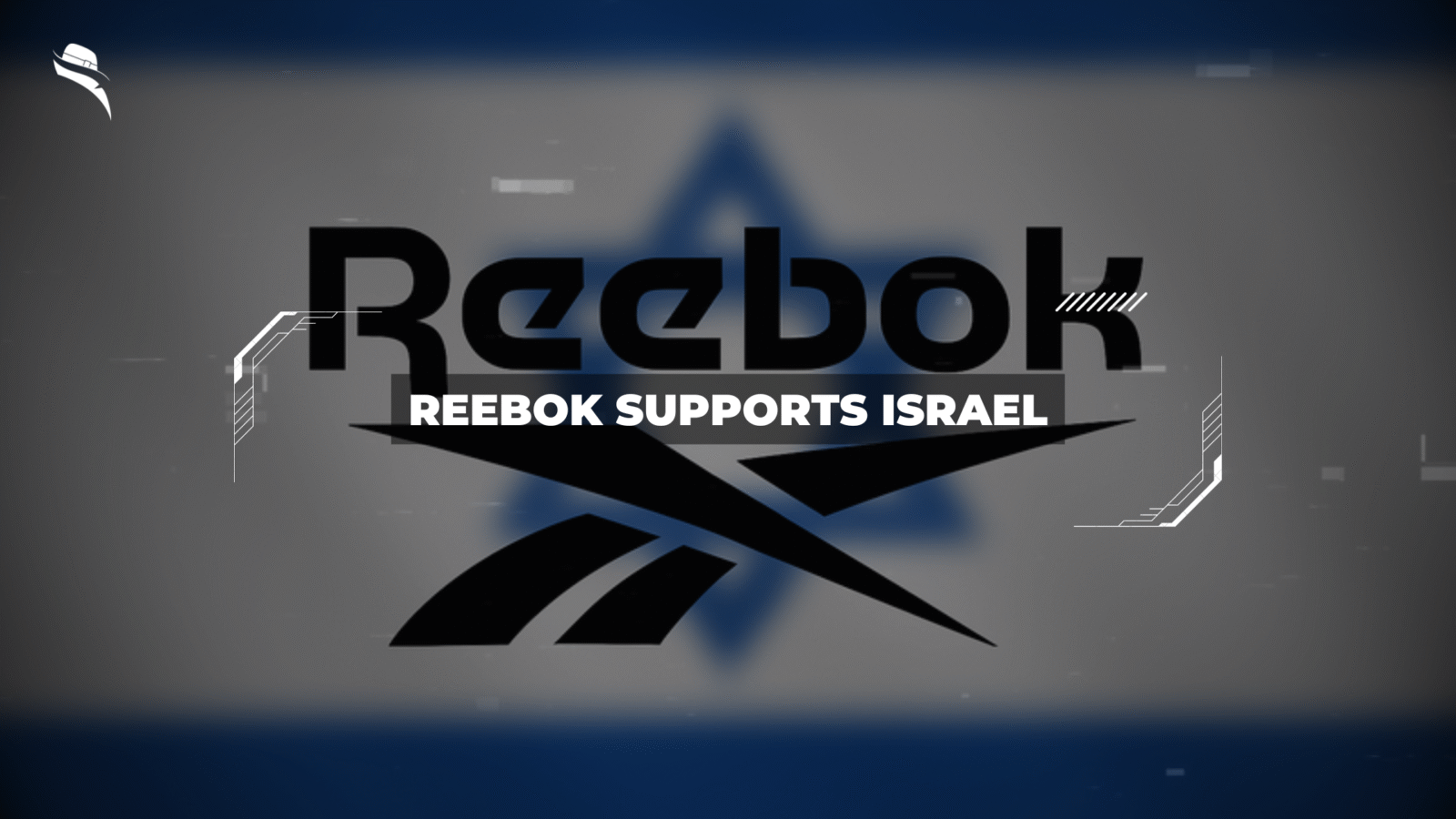
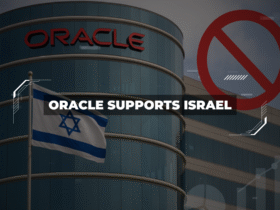

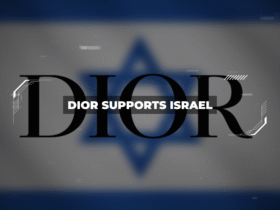
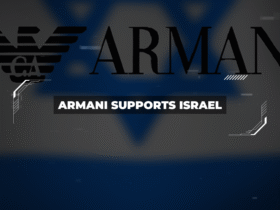
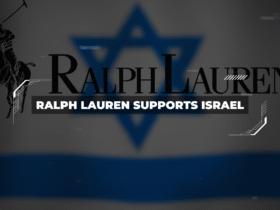
Leave a Reply